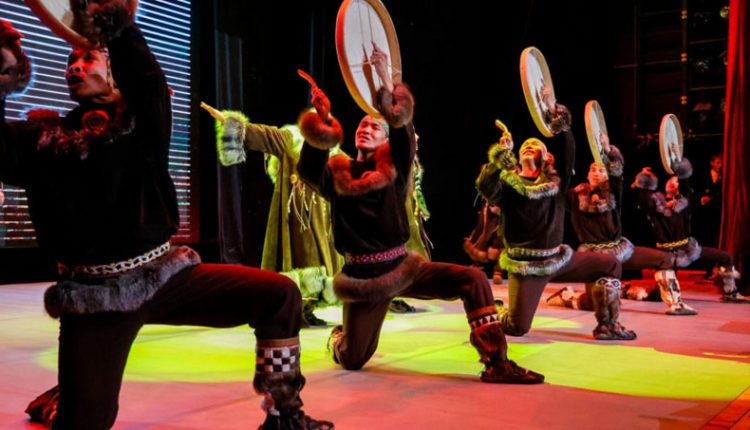New Delhi: The Bering Strait International Festival took place in Chukotka on 2–7 August as part of the main events of Russia’s chairmanship of the Arctic Council in 2021–2023. The festival programme included a business programme, the Bering Games International Sports Competitions, and an expedition around the region. In addition, the festival featured events dedicated to the International Day of the World’s Indigenous Peoples on 9 August. The Roscongress Foundation organized the events held as part of Russia’s chairmanship of the Arctic Council.
“The festival is extremely important in terms of the sustainable development of tourism in the Arctic and the Far East. The mere fact that such events are held in Chukotka – in one of Russia’s most stunning regions – and the interest shown by travel companies and residents of the Arctic regions confirm the vast potential of the Russian North. Thanks to the development of air traffic and tourist routes, these territories are becoming more accessible, the investment appeal of the Arctic is increasing, and the quality of life of local residents, including Indigenous Peoples, is improving,” First Deputy Minister of the Russian Federation for the Development of the Far East and the Arctic Gadzhimagomed Guseynov said.
“The festival brought together tourism enthusiasts in the easternmost region of our country. Our constant priority is to ensure the sustainable socioeconomic development of the Arctic territories and create comfortable conditions for the citizens living there. The Bering Strait Festival, which introduces everyone to the traditional culture of people living in the region, including Indigenous Peoples, and the unique nature of the Far North, makes a beneficial contribution to these efforts,” Chair of the Senior Arctic Officials and Ambassador-at-Large for Arctic Cooperation of the Russian Ministry of Foreign Affairs Nikolay Korchunov said.
The Bering Strait Festival’s business programme focused on the development of the tourism industry in the Russian North, as well as aspects of sustainable tourism and ways to improve infrastructure. The plenary session ‘Tourism in the Arctic: Advanced Development’ was the central event of the festival. It was attended by Chukotka Autonomous District Governor Roman Kopin, the heads of key organizations, and representatives of the Ministry for the Development of the Russian Far East and the Arctic, who discussed the prospects for meeting Russians’ demand for domestic tourism, the effect of preferential regimes in the Arctic, as well as the development of air traffic.
The business programme included four discussions on other ways to develop the tourism industry in the Arctic. Experts discussed ethno-cultural, ecological, and extreme tourism as well as how to involve the local population in the hospitality industry, and also considered best practices in organizing Arctic travel.
“As the global climate changes, the ice in the polar zone is melting and its importance in terms of strategic, economic, scientific, technical, environmental, transport, resource, and other aspects is continuously increasing. As the chair of the Arctic Council, Russia is making great efforts to promote the use of the Northern Sea Route and ensure environmental protection and sustainable development in the region. This festival is an important event for these efforts,” China’s Consul General in Vladivostok Piao Yangfan said.
The festival featured the Bering Games competitions among teams of Indigenous Peoples from nine regions of Russia’s Arctic zone. The 33 participants battled to determine the best athletes in seven northern disciplines, including: sled jumping, knee jumping, triple jumping, mas-wrestling, one-foot high kick, one-hand grab, and head band pull. The team from the Republic of Sakha (Yakutia) won the team event. Athletes from the Chukotka Autonomous District and the Krasnoyarsk Territory finished second and third, respectively. The main goal of the games is to get people living in Russia’s Arctic zone involved in regular physical education and sports, promote the traditional sports disciplines of Indigenous Peoples, and strengthen ties between Russia’s Arctic regions.
An expedition was also held for travellers, bloggers, and representatives of the film industry and national media. Over the course of a few days, they visited a number of tourist sites that are being developed in the Chukotka Autonomous District, including Cape Meechkina, and also viewed some of the sights in the region, such as the Symbol of the Sun monument where the Arctic Circle and the 180th meridian intersect and the Arctic Circle arch near the village of Egvekinot. In addition, the expedition members learned about the lives of a reindeer herding team in the village of Amguema, and also went on a boat trip. Highlights included the expedition members planting a flag to commemorate Russia’s chairmanship in the Arctic Council at Cape Dezhnev, the easternmost point of the mainland, and attending the traditional Beringia 2022 leather canoe regatta in the village of Lorino, which has been held since 1992.
This year, 20 teams from the national villages of the Chukotka District and the Providensky city district took part in the 28th regatta. As part of celebrations of the Day of Indigenous Peoples of the World, the village of Lorino also hosted festive events with performances by national folklore groups.
The festival was organized by the Government of the Chukotka Autonomous District and the Russian Tourism Agency.
As part of its chairmanship of the Arctic Council in 2021–2023, Russia is devoting considerable attention to the development of sustainable tourism in the Arctic to promote the progressive socioeconomic development of the Arctic regions, support small and medium-sized businesses in high latitudes, and also preserve and enhance the cultural heritage of the Indigenous Peoples of the North.

